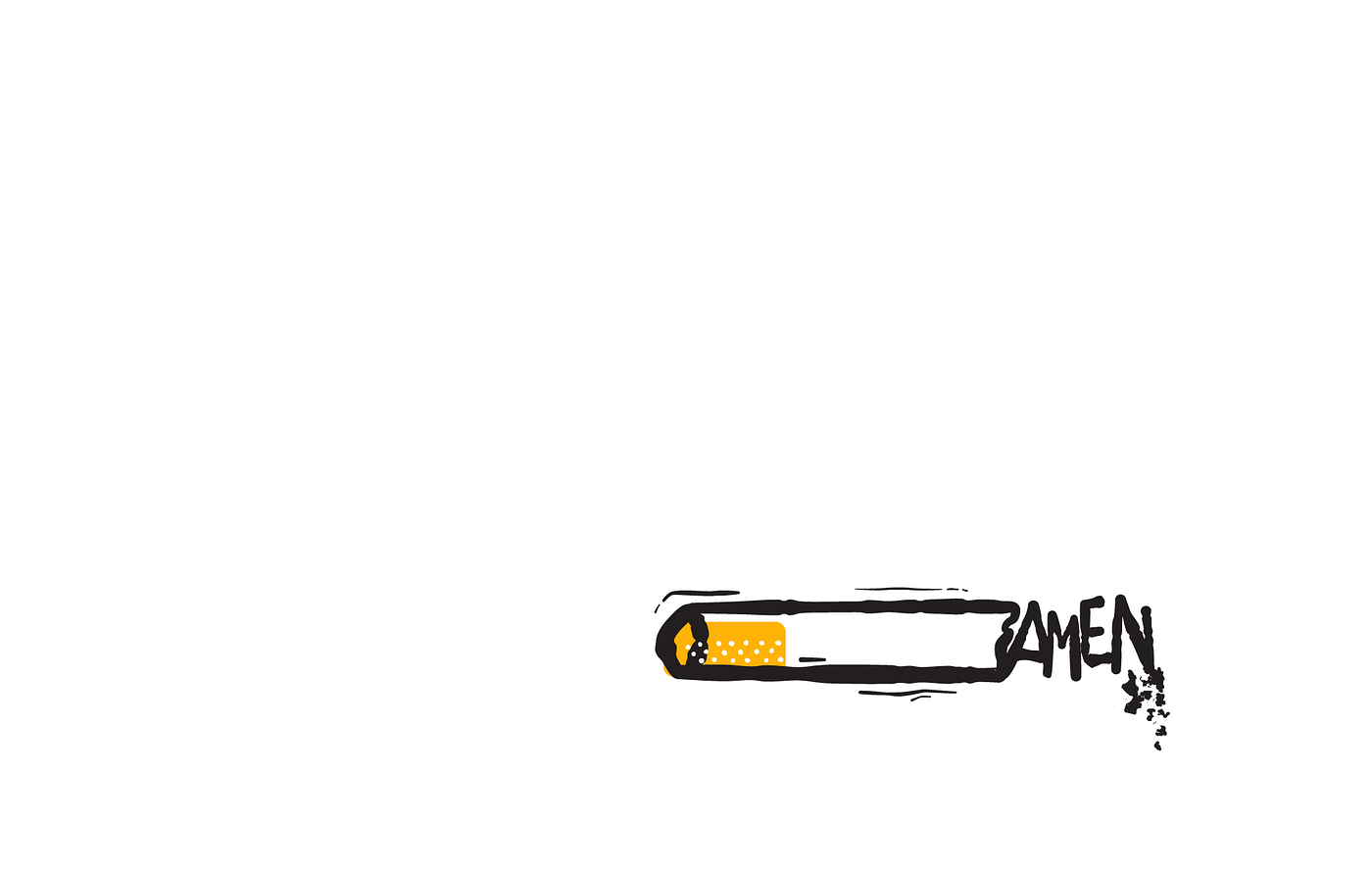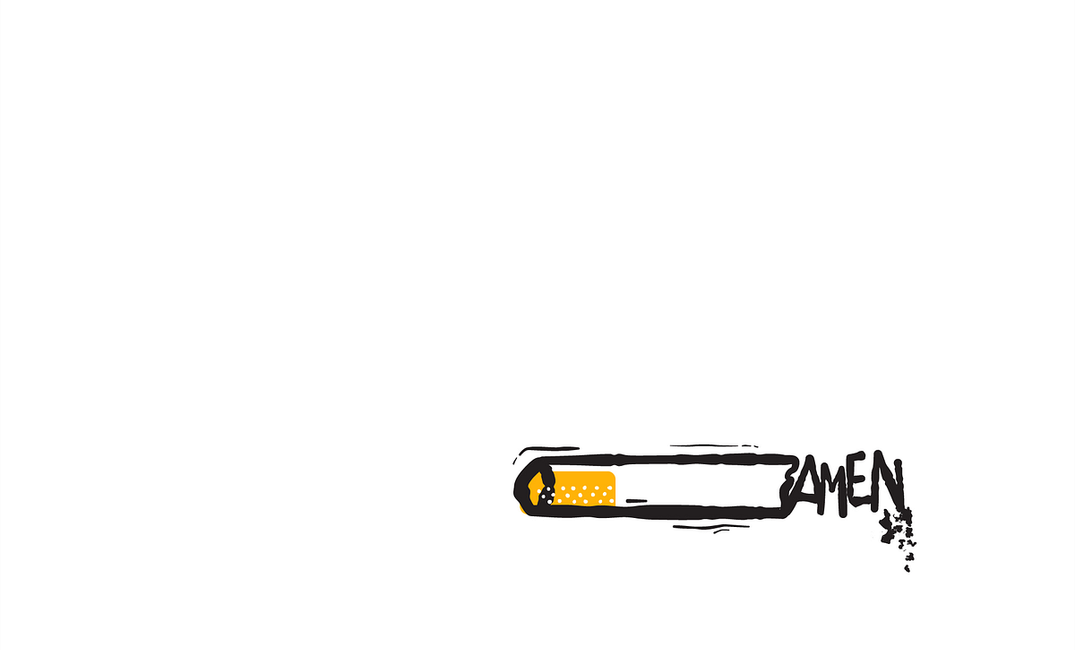
This is what you do at 25: you sit in a room full of strangers and friends and ask yourself earth-shattering, existential questions after one beer. At the Octopus Literary Salon in downtown Oakland, I am listening to a woman at the microphone talk about how she believes in crop circles and flying saucers. She’s a good writer — focused, clear — and she speaks in such a way that I could listen to her for hours. I admire that she can concretely point to something on this earth and say that she believes in it with fire and passion. Which gets me to thinking, what do I believe in?
After my second beer, I find that the answer is nothing. Whoops.
Which, of course, isn’t true.
The well-spoken writer talking about flying saucers is replaced by an eager amateur comic. My friend Hannah, whom I have known since I was 13 in Idaho, throws her head back to laugh before turning to see if I have heard. Hannah is stunning and smart as hell, with a drive and self-determined fortitude that makes Steve Jobs look soft. After graduating from college in Boise, she moved to the Bay Area for work and fell in love, digging her heels in and calling Oakland her new home. Hannah is my touchstone in the bay, my piece of home who helps make sense of the insanity of living in California. She’s the one who will occasionally make eye contact with me across a room or a bar or during a group conversation as if to say, “It’s all right. You’ll adjust.” In a rough patch, I know folks who will pray with their hands clasped tight and eyes shut. I don’t know how much that helps, but having Hannah around has made a world of difference.
Which is a really long way of saying that sitting in that Oakland bookstore, I looked around the table and told myself that if I could believe in Hannah, then I could believe in something, and maybe that something was more concrete than extraterrestrials or a holy ghost.
Where I’m from, there is a 60-foot-tall neon cross on what was once Shoshone land but that became government land and then, later on, in a much-disputed quiet auction, private land so that no one could pull that “separation of church and state” malarkey that they did almost everywhere else. It overlooks the entire town of Boise, and when I was growing up, you could still see it from just about anywhere you could plant your feet within the city limits. This, coupled with the six blocks or so of churches in our downtown area, the Mormon churches that appear with a Starbucksian level of frequency and my own parents’ attempts to find community and a sense of self through a church, means that I spent a lot of my formative years muddling my way through organized religion.
But no matter the number of different youth groups I joined or sermons I sat through with my mom (usually in the back pew with a book in my lap), something didn’t quite add up. For one thing, any supreme, higher being certainly had bigger fish to fry than the fact that my mom took me to piano lessons on a church morning (make a joyful noise, right?). What was this magnificent plan people were always yammering on about, and why did it not involve me doing anything?
What began as a sense of not fitting in became a straight-up rejection as I got older and the world’s shadowy corners started to come into focus. Before I left Boise for good, I stopped asking why God let bad things happen to good people and started asking how God could let those things happen to me. I’d taken a gap semester from school to grapple with depression and crippling anxiety and somehow found myself wrapped up in an older boyfriend — a textbook gas lighter and domestic rapist. It was OK, I told myself. I was mature for my age, not like other girls. He believed in God. Racked by guilt and a desperate need to believe in something that wouldn’t cause pain, I started transitioning away from saying that I believed in “God” to saying that I believed in a “nebulous higher power” — because I needed to quiet that inner voice telling me I was to blame. But that didn’t quite nail the chaos in my core.
When I was 19, I left my 28-year-old boyfriend. He shaved his head and showed up at my apartment at all hours, telling me in so many words that he was suicidal, that he was going back to drinking, that no one could help him even though he prayed to God all the time and that it was basically my fault. I showed up on Hannah’s front porch one night, cigarettes clutched in one hand and a can of Coca-Cola in the other, and promptly began to sob. Hannah sat with me, reminded me that this was out of my control, that it was not my fault, that my cigarette had gone out and … “Here, honey, do you need a lighter?” She told me over and over again that I was right to leave, that going back wouldn’t fix it. Like always, Hannah helped me find my own saving grace, and I didn’t go back.
It took leaving a place where 10,000 strangers will march in the street to “save” a neon cross for me to find my faith. It makes me sound crazy, and maybe it’s because I’m new here, but I believe in other people — the Hannahs of this world, if you will.
Sitting on the edge of Lake Merritt next to the Fairyland sign during my first week in the Bay Area, I am frustrated and confused and without an anchor, and Hannah is telling me stories while we sip beer in the sun. A young man asks to borrow a lighter, and when Hannah tells him I’m new, his whole face splits into the sweetest smile I’ve seen in weeks. “Welcome,” he says. “This is a great place.” And just like that I believe him, and my anxiety quiets.
Waiting in line for coffee on Market Street, on break from my internship, I listen to the baristas chat in Spanish while a man pours a lot of cream into his cup. Before he leaves, he grasps each hand over the counter and tells them, “God bless you and your families. I love you.” A moment of joy and honesty — yes, even with the God part — when the tech start-up crews around me are staring at their phones.
Sure, people can do horrible things, and they frequently will. But sometimes you get a Hannah who lights your cigarette or buys you a beer or reminds you not to call BART “the train,” because then everyone will know you’re not from around here. For every three moments of violence or villainy on this earth, those single, small acts of gratitude, respect and graciousness are their own miracle.








